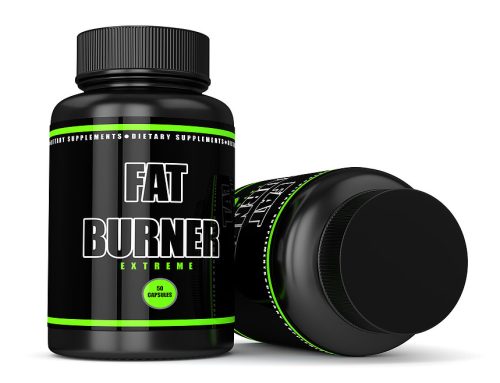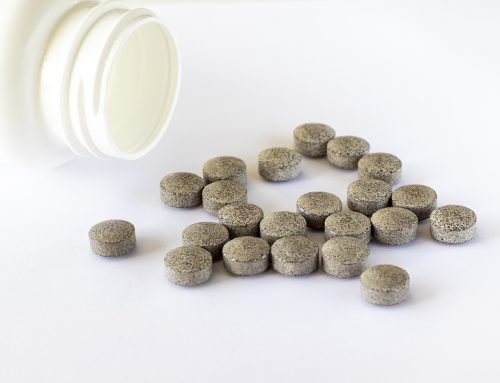Everyone has heard the commercials at least once. Sensa, the miracle supplement that will help you lose weight without resorting to a diet! Trainers and doctors have been inundated with questions about the supplement for years. Now, thanks to the FTC, the advertisements have stopped. Sensa marketing has been put on hold until the company can provide some evidence that their product works.
 Sensa was created through the research of Dr. Alan Hirsch, a board certified neurologist and psychiatrist. Dr. Hirsch’s research concerned the effect of certain smells and tastes on a multitude of human behaviors and diseases, including obesity. With this in mind, he created Sensa, which are “tastant” granules, meant to be sprinkled on top of food.
Sensa was created through the research of Dr. Alan Hirsch, a board certified neurologist and psychiatrist. Dr. Hirsch’s research concerned the effect of certain smells and tastes on a multitude of human behaviors and diseases, including obesity. With this in mind, he created Sensa, which are “tastant” granules, meant to be sprinkled on top of food.
Dr. Hirsch uses the term ‘tastant’ in an effort to make his product stand out and feel unique. Sensa is claimed to “enhance the aroma of your food” and make you “feel full faster,” which is supposed to lead to weight loss.
These “tastant” granules are made of maltodextrin (derived from corn), tricalcium phosphate, and natural and artificial flavors, according to the SENSA® website (http://www.sensa.com). There are no active ingredients in the original version, although the new formula contains chromium. Unfortunately for Dr. Hirsch, Sensa ingredients do not have any weight loss effects, and there are no studies or research that back up the product.
The theory behind Sensa granules is legitimate, as the aromatic properties of food do heavily influence overall food intake. For example, rotting or fermented food reduces appetite through smell, whereas a combination of cinnamon and sugar is able to stimulate the appetite. Who doesn’t get distracted by the aroma of cinnamon buns? Though Dr. Hirsch’s premise is correct, his chosen molecules (like maltodextrin) do not have the intended effect.
How did Dr. Hirsch sell more than $360 million of Sensa products? It takes time for the FTC and FDA to assess claims. If a claim is deemed invalid, a cease and desist order is sent. When a company provides a vague and plausible claim, such as the concept that taste sensations change appetite, inevitable regulation is delayed. Between the time that a supplement hits the market and the FDA/FTC act, a hefty profit can be made.
Sensa is just one example of a practice that is, unfortunately, commonplace. New dietary supplements should always be thoroughly investigated before supplementation.
 If the advertised molecule is new, then proper research is twice as important. Neutral and unbiased databases like Examine.com can go a long way toward establishing the truth behind new supplements.
If the advertised molecule is new, then proper research is twice as important. Neutral and unbiased databases like Examine.com can go a long way toward establishing the truth behind new supplements.
About the Author
Spencer Nadolsky is the current Director of Examine.com and a practicing physician in Virginia. He is currently working on his board certifications in Family Medicine, Bariatrics, and Lipidology. Dr. Nadolsky tries to treat his patients with nutrition, exercise, and sometimes supplements while minimizing the need for pharmaceutical drugs (although they’re necessary sometimes). Visit Dr. Nadolsky online at: www.facebook.com/DrSpencerNadolsky
Related articles:
Acai Berry Scammers Caught Red-Handed:
www.burnthefatblog.com/archives/2011/04/acai-berry-scam-shocking-proof.php
The HCG Diet Scam (Please go away once and for all):
www.burnthefatblog.com/archives/2013/03/the-hcg-diet-weight-loss-scam.php
Subscribe to the Burn the Fat weekly newsletter and get my ebook, "The 20 Best Fat-Burning, Muscle-Building Recipes Of All Time" FREE!
Your email is safe with me!






Thank you for the information. Any thoughts on Herbalife products, especially the formula 1 shake?
best regards,
Dragos
Dr. Oz backed this supplement too. What a con artist.
Thanks for an honest point of view.
I think that the FTC is good, most of the time, spotting things like these. I am curious to see if the makers of Sensa will have any proof to report back about, you will keep us posted, right?
we’ll make updates on any post if new data is published, but i wouldnt hold your breath. whats the active ingredient? Isnt the only ingredient in this stuff maltodextrin? can anyone even propose a mechanism?
Very useful information. There is absolutely no substitute to hard work. The licenses of frauds must be revoked until they can prove their case with solid evidence. Please keep exposing such fraudsters.
Yeah, this stuff is annoying. You can live for a while in this industry with bogus claims, but with the internet sooner or later you will get busted.
Same thing is happening with the Bulletproof stuff – slowly people are starting to turn back to the truth. Being scientific and truly trying to help people may not be as initially successful, but it most certainly beats this fad crap out in the long run.
Great article Spencer!
Jay
As a trainer, I never recommend this kinda stuff because you know sooner than later the truth comes out.
I’m really aghast and taken back by all the weight loss that are jumping on board after this FTC fine and trying to act like know it alls.
Sensa may not be perfectly healthy, but you know what else isn’t perfectly healthy ?
Struggling with weight loss and raising one’s risks of Cancer and Diabetes.
I tried Sensa on a goof and it totally worked for me.
So instead of attacking Sensa, perhaps be more measured about it !
Seriously, we know weight loss is a struggle, even more so keeping it off and there are health risks of being overweight or obese. However, you missed the point. I dont even think spencer discussed whether sensa was unhealthy (though some over the counter supplements may be). He said there is no evidence that it helps with weight loss and the FTC said the company must therefore cease and desist from saying this stuff helps with weight loss when no such evidence exists. On this blog myself and my guest bloggers will continue to expose products that lack evidence of effectiveness OR safety as well as expose companies that use false advertising